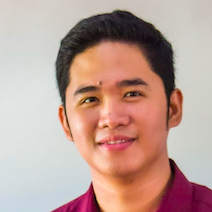

There is a perspective in the social sciences which views society as a system of interrelated parts, with specific functions, working together to maintain the state of balance. It contends that any disturbance in one of the structures influences other systems. The survival of any society, according to this view, depends on how effective each part achieves their goals amid the challenges, both internal and external. It is undeniable, however, that society changes over time and new challenges appear. Society, therefore, must adapt to changing situations.
The question of survival is apt given the challenges of the coronavirus pandemic. Our hopes as a nation during these trying times is expressed through the slogan “We Heal as One,” and even in Republic Act 11649, the Bayanihan to Heal as One Act. While our goal is clear, the means towards this collective healing seems to be difficult.
The American sociologist Talcott Parsons argues that structures of society have necessary functions to perform. Parsons calls them functional imperatives: 1) legitimate utilization and distribution of wealth, 2) effective leadership structure that have clear goals, 3) a credible justice system to ensure harmony, and 4) commonly held values to foster social unity and collective pride. These functional imperatives are assigned to the economy, the government and political institutions, the law, and the domestic institutions, respectively. The capacity of each system to carry out their functions determines not just their own success or failure but, to follow the functionalist perspective, that of the entire society.
How do we use these imperatives to describe the current pandemic crisis?
The Philippine economy, as reported by the Development Budget Coordination Committee (DBCC), faces 2% to 3.4% contraction during this crisis. Aside from this, our debt has increased as the Philippine government borrows P9.59 trillion to fight the pandemic. As business establishments close due to community quarantine, the jobless and poor families have to rely on government financial aid. The recovery of our economy seems to be a more daunting challenge as we try to enter a new way of life. Indeed, this will not be an easy task for the country’s economic experts and the government.
Economic recovery is just one of the goals that needs to be secured. Our governance structures should set clear plans to fight the virus. But in the recent statement of Presidential Spokesperson Harry Roque, he mentioned that private sectors will be the key players for mass testing since the government has no plans for such.
This is just one of the disappointments that the public has with the governemnt. Besides this, the justice system has been the center of mockery and dissent due to its failure to uphold the law. Government officials who have violated the guidelines of the community quarantine have not been penalized. Ordinary citizens, on the other hand, have paid fines, been imprisoned, and in one instance, been killed.
Finally, our domestic institutions are also facing their own crisis. Schools are pressured to use online platforms to continue classes. But this will not be easy, especially for poor students who have little to no access to a stable internet source. This is just one manifestation of how the pandemic is experienced by different groups of people. Aside from schools, mass media also becomes a source of instability because of fake news about the coronavirus. (READ: Online outrage drowns out Duterte propaganda machine)
How do we make sense of these challenges? Indeed, every sector of our society is facing a specific challenge. But it is important to look at the systemic connections among our institutions. With a flunking economy, poor governance, unfair justice system, and struggling civil society, our survival is hard to realize. Getting back to normal or, from a functionalist view, a state of equilibrium, requires the fixing of each system. A struggling economy should be countered by an efficient government. Rules and regulations imposed by the government should be based on the rule of law and does not exempt anyone, even those who implement them. The law should be credible and should not be the source of conflict among the people. The domestic institutions or civil society should be the source of unity and high morale.
The key to our survival does not lie in a single social institution. If all of us are affected by the coronavirus pandemic, it is only logical to see the solution from the coordination of all parts and of every member of society. And if we are serious about healing as one, we need to recognize the problems of our society one by one. – Rappler.com
Prince Kennex R. Aldama is an assistant professor of sociology at the Department of Social Sciences, UP Los Baños.